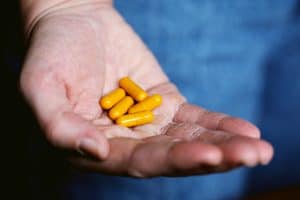Teva’s MS treatment disappoints
pharmafile | August 2, 2011 | News story | Research and Development, Sales and Marketing | Laquinimod, MS, Teva
Teva and Active Biotech’s oral MS drug laquinimod has failed to meet its primary endpoint in a phase III trial.
Laquinimod, an oral, once-daily therapy for relapsing-remitting multiple sclerosis, was studied for safety and efficacy compared to placebo.
The BRAVO study was also designed to provide a benefit-risk assessment comparing oral laquinimod and a reference arm of Biogen’s injectable MS drug Avonex.
The drug failed to meet its primary endpoint of reducing the annualised relapse rate, dealing a major blow to its commercial potential.
The results are a blow to Teva, which is seeking a successor to its current injectable MS drug copaxone, which made the firm $3.3 billion last year.
BRAVO is the second of two pivotal phase III studies in the clinical development programme for the drug.
The first study, ALLEGRO, showed that laquinimod produced a statistically significant 23% reduction in annualised relapse rates when compared to placebo.
Teva, alongside its Swedish partner Active Biotech, said that despite today’s disappointment, the results from both studies would be enough to allow for regulatory filing.
Professor Yitzhak Peterburg, Teva’s Group VP of Global Branded Products said: “We are encouraged by the overall outcomes achieved in the laquinimod phase III clinical development programme, and plan to submit applications to regulatory authorities in the US and in Europe.
“Teva remains committed to the clinical development of laquinimod and is confident that the drug could provide a unique option for the treatment of multiple sclerosis.”
The news has shaken investor confidence in the drug, however, many of whom believe the drug has little chance of gaining approval.
Additional analyses of the BRAVO study data are ongoing, and results will be submitted for presentation at a scientific congress later in the year.
This will be good news for Novartis that was the first pharma firm to get an oral MS drug to market, and is tipped to be making peak annual sales of over $2.5 billion.
Gilenya (fingolimod), which gained European approval in March and US approval last year, still looks set to keep the lucrative oral MS market to its self for the foreseeable future.
Its nearest challenger currently comes from Sanofi’s oral MS drug Lemtrada (alemtuzumab), which is expected to be filed in the US and Europe in mid-2012.
Ben Adams
Related Content

Teva’s Ajovy significantly reduces migraine in children and adolescents
Teva’s Ajovy (fremanezumab) has demonstrated significant reduction in monthly migraine and headache days in children …

Teva announces positive results from trial of AJOVY for migraine
Teva has announced positive results from the phase 4 PEARL study of AJOVY (fremanezumab), its …

Sanofi shares results from phase 2 trial for frexalimab in MS treatment
Sanofi has announced new phase 2 trial data for its CD40L monoclonal antibody, frexalimab, for …





